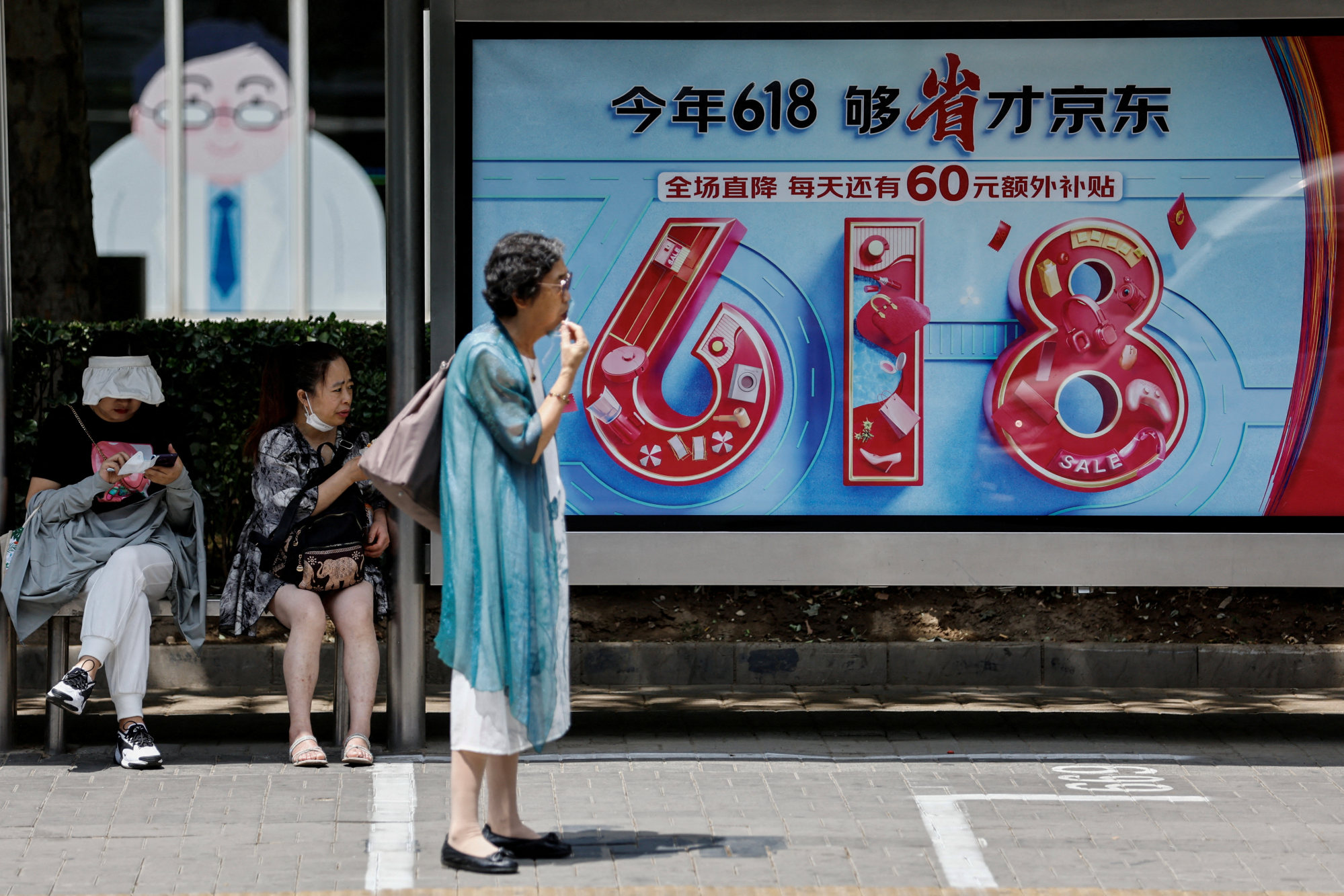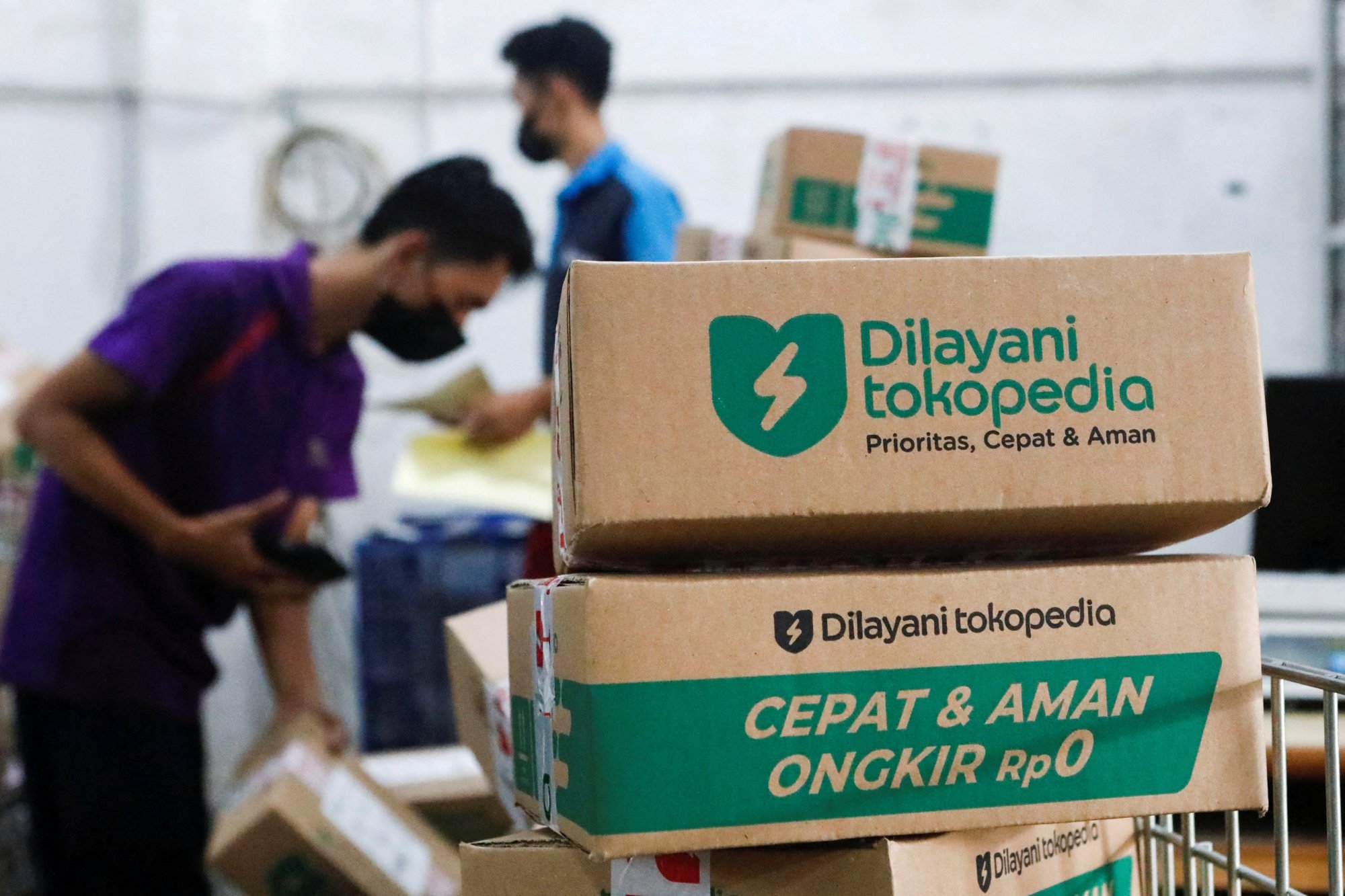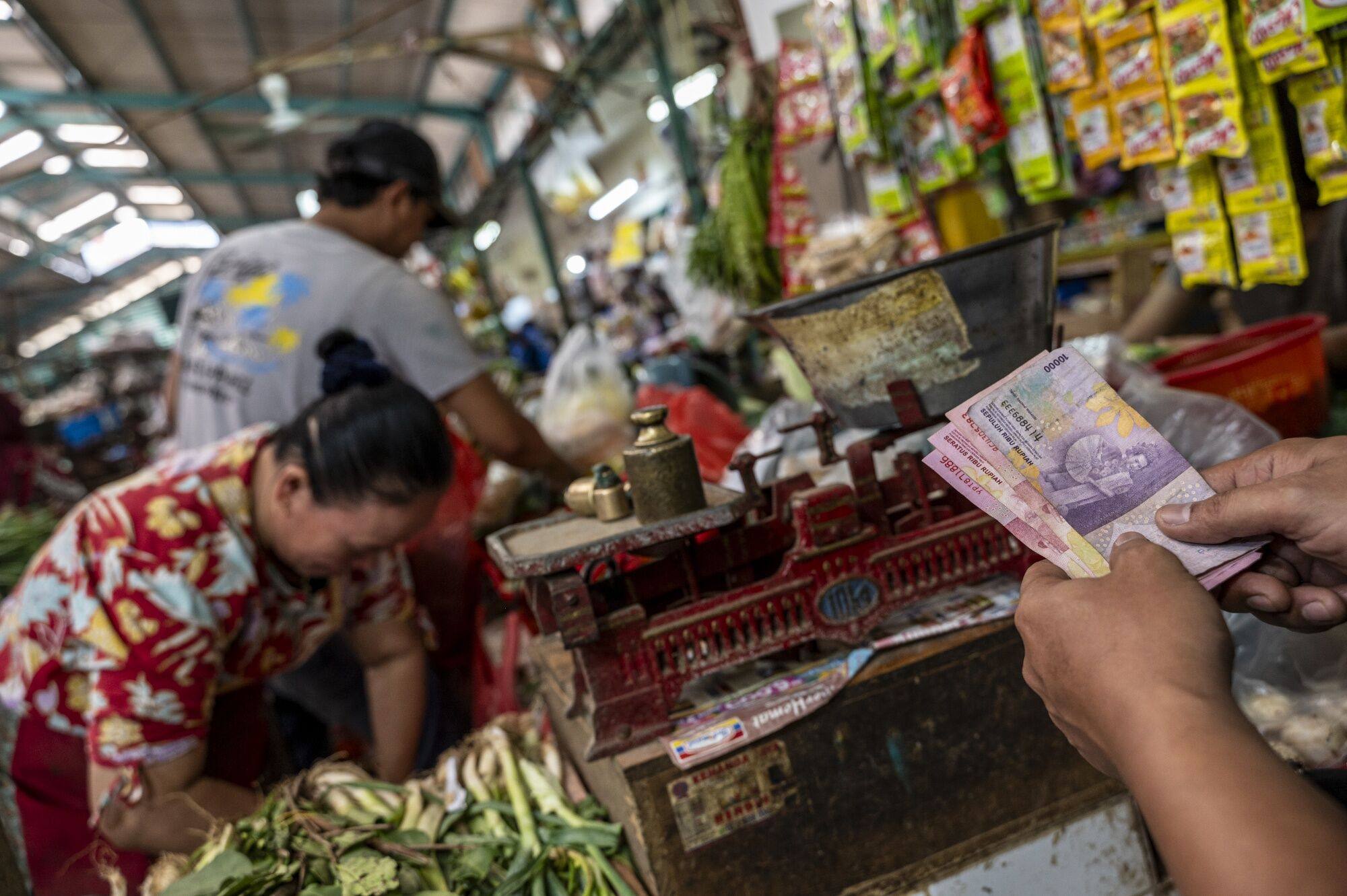Indonesia’s e-commerce import ban: risky protectionist move or political ploy that’s ‘not going to work’?

[ad_1]
But Jakarta, seemingly, was not reassured. At the end of July, Indonesian Trade Minister Zulkifli Hasan announced that the government was working to implement a ban on imported goods worth less than US$100 each – bought via online marketplaces or social media – to protect the country’s MSMEs.
The proposed regulation follows years of complaints from the sector about unfair competition and promises to shield smaller businesses from predatory pricing by all overseas players, not just Chinese ones.
How important are China-Indonesia trade ties?
How important are China-Indonesia trade ties?
“Unreasonably-priced” goods from abroad threatened to “wipe out” Indonesia’s MSMEs, the Ministry of Cooperatives and Small and Medium-sized Enterprises said in a statement, with minister Teten Masduki adding that foreign goods “at the cheapest possible prices” had flooded the market because controls were “too loose”.
The move to curb cheap imports was applauded by many MSMEs, but it has also raised concerns around enforcement – as some observers dismissed it as a populist ploy aimed at winning votes ahead of a general election due in February.
It’s not going to work if it’s not well thought through and proper processes are not implemented
Torajamelo’s Saxena questioned the policy’s effectiveness, saying “if you close one route [for cheap imports] they will still come through some other way”.
“There will also be [bigger] buyers who have the money who will pay the fine and get away with it,” she said.
“It’s not going to work if it’s not well thought through and proper processes are not implemented [to police it].”
The ban could even hurt MSMEs themselves, Saxena said, pointing to the worried resellers who depend on cheap imports to make a living.
To work, the ban needs to be paired with a push to develop Indonesia’s local manufacturing industry at the same time, she said.
‘Who is this meant to protect?’
But Indonesia is unique in that MSMEs make up 99 per cent of total business activity in the country, create 97 per cent of jobs and contribute about 60 per cent of gross domestic product, according to Indonesian government data.
Many are family-run businesses with between two and five employees, experts who research the sector like Meilasari-Sugiana say.
As with the rest of Southeast Asia, e-commerce in Indonesia has grown rapidly over the past decade, luring legions of established Chinese players who learned their trade on massive shopping platforms like Tmall, Taobao and JD.com.

The scale at which they can operate means that they’re able to undercut local producers by 50 per cent or more, a spokesman for regional e-commerce logistics provider Locad said.
And the rewards are anything but trifling. By sales value, Indonesia now has Southeast Asia’s largest e-commerce market, venture capital firm Momentum Works found in a June report.
In an effort to stem the tide of cheap imports after the number of inbound parcels had leapt by more than 800 per cent, Jakarta from January 2020 lowered the de minimis rate – the threshold for when import duties and taxes are applied – to US$3 per shipment from US$75 previously.
That put a stop to overseas resellers operating through official platforms like Lazada and Shopee, but the trade just moved into the grey economy and onto social media with sales made through apps like Facebook, WhatsApp and TikTok, the Locad spokesman said.

Tokopedia, the Indonesian e-commerce giant, has done away with overseas vendors entirely – insisting that all 14 million or so of its sellers are local MSMEs.
“Given that the Tokopedia platform is a fully domestic marketplace, it is not possible for sellers to directly import goods from abroad or facilitate cross-border transactions within the platform,” said Hilmi Adrianto, the site’s head of public policy.
But it is the exception to the rule. Lazada and Shopee, two of the biggest e-commerce platforms also operating in Indonesia, did not immediately respond to This Week in Asia’s requests for comment.
For some, the proposed ban on cheap imports raises more questions than it answers.
If online platforms are to police the sale of any imported goods priced below US$100 ‘per unit’, what exactly constitutes a unit? Is a tea bag a ‘unit’ of tea?
“If online platforms are to police the sale of any imported goods priced below US$100 ‘per unit’, what exactly constitutes a unit? Is a tea bag a ‘unit’ of tea? A box of tea bags? A carton?” asked lawyer Joel Shen, who heads up regional law firm Withers KhattarWong’s Indonesia practice.
“Who is this law meant to protect?”
Economist Siwage Dharma Negara, who co-leads the ISEAS – Yusof Ishak Institute’s Indonesia studies programme, said such a ban intervenes in the free market and would create spillover effects for the Indonesian economy – not to mention the additional burden on taxpayers if the government wheels out policing measures.
“There is a cost of protection that the government must consider, including higher prices [for consumers] and inefficiency,” he said.

“There is no guarantee that the ban will help MSMEs in a significant way but the long term effect will certainly be bad for the economy due to a loss of efficiency. This is why the policy must be monitored closely.”
Negara says if the government needs to implement further policies, it should consider taxes or tariffs rather than a blanket ban on imports.
If enacted, an anticompetitive import ban would tarnish Indonesia’s appeal to international businesses and investment, lawyer Shen said – and also run afoul of its World Trade Organization commitments to free trade.
Deborah Elms, executive director of advocacy organisation the Asian Trade Centre, agreed with Negara that taxes or a further lowering of the ‘de minimis’ duty threshold might be less abrasive to global trade commitments than a ban.
“A key principle of the WTO is non-discrimination. You are meant, in brief, to treat foreign and domestic goods alike,” she said.
But even if Indonesia went ahead with the ban, disgruntled countries like China would not get much of a reprieve at the WTO due to its dysfunctional dispute arbitration system, Elms said.
“You could be sued, but any appeal would not be heard,” she said.
Indonesia’s bauxite ban risks WTO complaint but won’t rock global supply
Indonesia’s bauxite ban risks WTO complaint but won’t rock global supply
Aside from the loss of reputation, the biggest issue Indonesia would face by implementing the ban would not be WTO rules but possible retaliatory action from other countries, according to Elms.
“What happens if others turn around and impose the same restrictions against Indonesian small-size online sales?” she asked.
Deep-rooted fears of exploitation
Arianto Patunru, a fellow at the Australian National University’s Arndt-Corden Department of Economics, said protectionist policies were hardly unheard in Indonesia – especially in the run-up to general elections.
“The nationalist sentiment behind protectionist measures in Indonesia has been around for quite some time,” he said.
“As usual, populism sells … during the election period. Whether or not the policy will become effective is an aside. In fact, some of the calls might not materialise once the election is over.”
The key message is that someone external is benefiting at the expense of Indonesians, as happened during colonialism
Appeals to notions of “Indonesia’s interests” through protectionist policies play on Indonesians’ deep-rooted fears of exploitation by foreigners, according to Elisabeth Kramer, a senior lecturer at the University of New South Wales’ School of Social Sciences who studies Indonesian politics and policy.
“This is particularly potent when thinking about Indonesia’s postcolonial history and the rejection of European influence in the postcolonial era,” she said.
“The key message is that someone external is benefiting at the expense of Indonesians, as happened during colonialism, and good political leadership will take steps to dismantle the systems that allow for this to happen.”
Mobilising nationalist sentiments has been “an enduring political strategy in Indonesia since elections were first held” because Indonesians tended to be more concerned with domestic rather than global or abstract issues such as climate change, Kramer added.

But the chatter surrounding the e-commerce ban has differed from anti-foreign rhetoric used in past elections, said Kennedy Muslim, a researcher at pollster Indikator Politik Indonesia, and might not have the same visceral effect on Indonesians.
Indonesians have benefited from cheap imports and polls taken by Indikator last year showed that some constituents perceived foreign trade as advantageous to the country.
Polls have also shown that inflation is a top issue for voters, and if the proposed import ban raised prices of everyday goods for Indonesians then Muslim said the strategy could easily backfire on the government.
As Jakarta chokes, Indonesian activists slam government inaction over pollution
As Jakarta chokes, Indonesian activists slam government inaction over pollution
“[The ministers involved] might not like the repercussions from the electorates if their proposed regulations lead to higher prices and scarcity of goods,” he said.
Should a ban lead to price rises and shortages of affordable goods, however, local Indonesian producers are capable of, and likely to, step up to fill the gap, according to Glen Ramersan, managing partner for Indonesia at Southeast Asian venture capitalist firm TNB Aura.
Indonesian social commerce start-up Super, a TNB Aura investment, has already started to produce competitively priced private-label goods, he said.
[ad_2]
Source link





